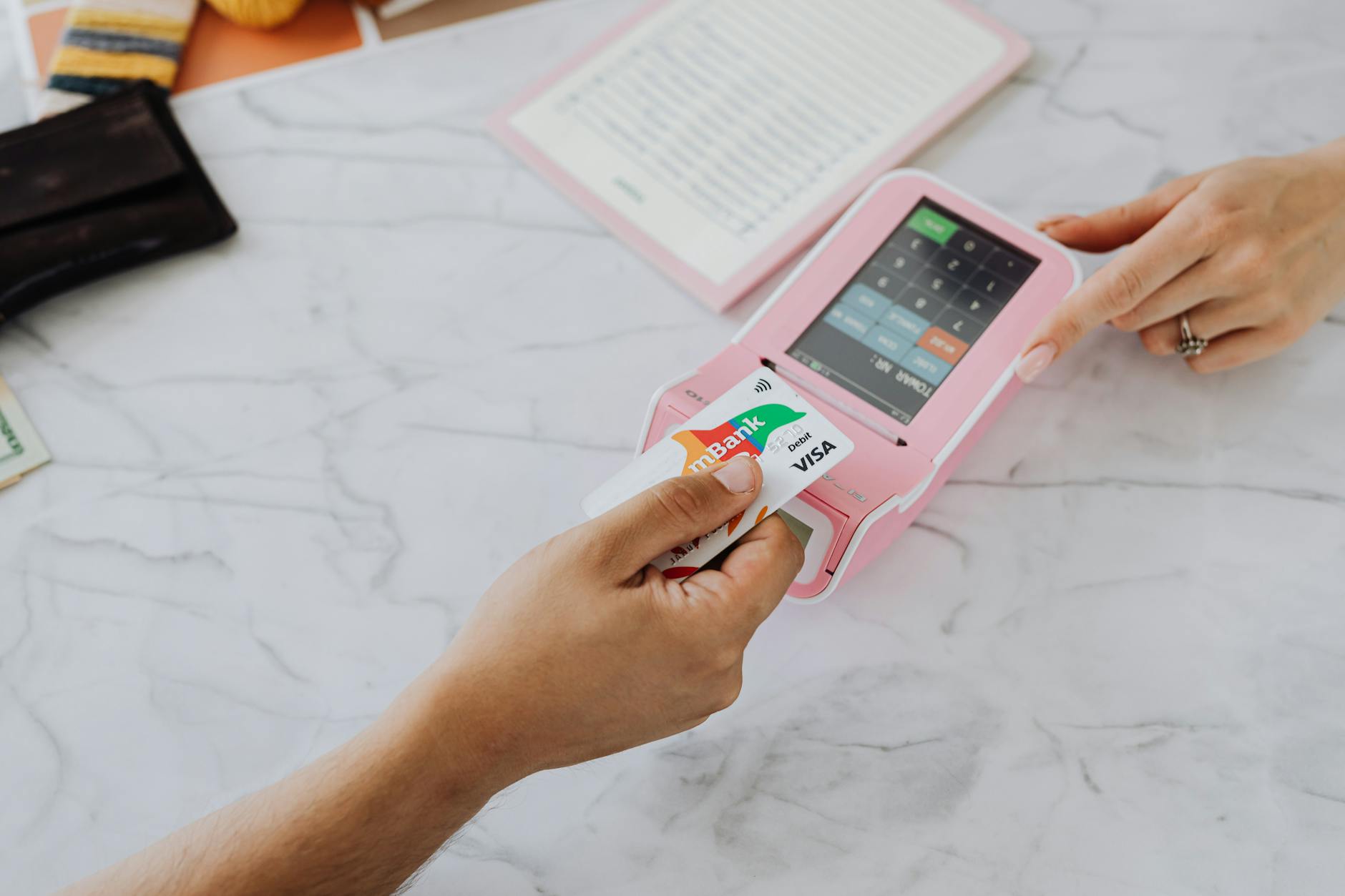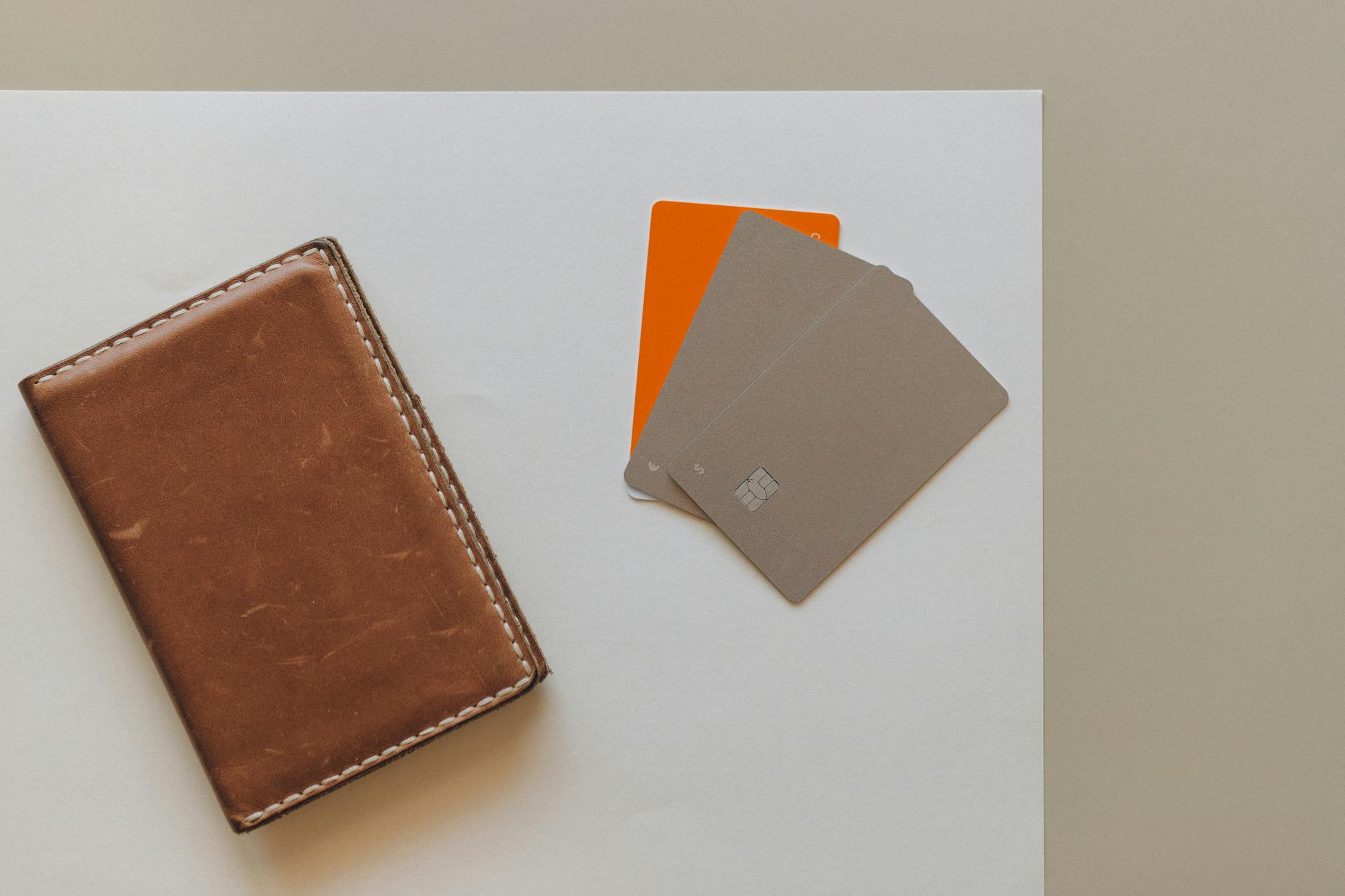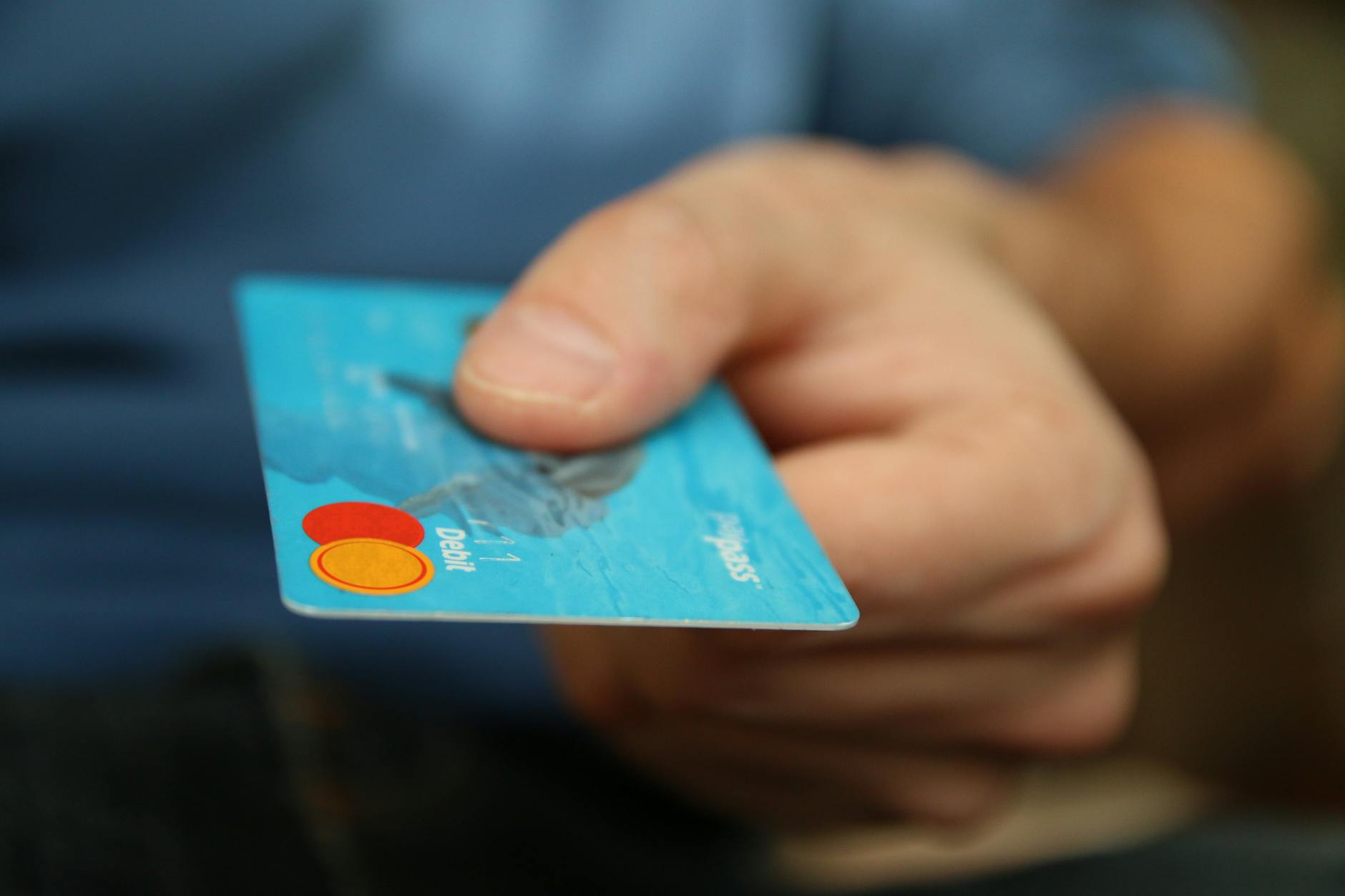Debit vs Credit Cards: Which Card Fits Your Spending Style?
Debit vs Credit Cards: Which Card Fits Your Spending Style?
When it comes to managing your money, understanding the difference between debit and credit cards is essential. Each card offers unique advantages and challenges that can significantly impact your financial health. Choosing the right one can set you on a path toward better budgeting or financial freedom.
In this post, you’ll learn about the key differences between debit and credit cards, including their advantages and disadvantages. We’ll also unpack scenarios where one may be more beneficial than the other. By the end, you'll have a clearer perspective on which card aligns with your spending habits and financial goals.
To guide your choice effectively, we’ll explore real-life examples and expert tips. Whether you’re just starting out or looking to optimize your payment methods, understanding these cards’ nuances can enhance your financial savvy.
The Basics of Debit and Credit Cards
Understanding debit and credit cards can significantly impact your financial habits. They are common tools for spending, but they function in different ways. Let’s break down what each card is and how they work.
What is a Debit Card?
A debit card is a payment card that directly links to your bank account. When you make a purchase using a debit card, the money is immediately withdrawn from your checking account. This card acts like an electronic check, making it easy to spend only what you have.
Typical Usage:
- Point-of-Sale Transactions: Use your debit card at retailers to buy groceries, clothes, or any other everyday items.
- ATM Withdrawals: Access cash directly from your bank account, usually without any fee if you use an in-network ATM.
- Online Purchases: Shop online safely, knowing that you are spending only your available funds.
For more information on debit cards, you can check this overview.
 Photo by Kaboompics.com
Photo by Kaboompics.com
What is a Credit Card?
A credit card is a payment tool issued by a bank or financial institution that allows you to borrow money up to a certain limit. It enables you to make purchases or withdraw cash on credit, which means you’ll repay the loan later, usually on a monthly basis.
How They Work:
- Lines of Credit: Each credit card comes with a predetermined credit limit. This is the maximum amount you can spend using the card.
- Structured Payments: When you use a credit card, you have a grace period to repay the balance. If you pay in full by the due date, typically there are no interest charges. If you carry a balance, you’ll incur interest based on your credit card's annual percentage rate (APR).
To learn more about credit cards, check out this in-depth guide.
Knowing the differences between a debit and credit card can help you manage your finances smarter and more effectively.
Key Differences Between Debit and Credit Cards
Understanding the distinctions between debit and credit cards is crucial for smart financial management. Each card serves a different purpose and has various implications on spending limits, credit scores, and fraud protection. Let's break it down.
Spending Limits and Payment Methods
When it comes to spending, debit and credit cards operate quite differently.
-
Debit Cards: These cards pull money directly from your bank account. This means you're limited to spending what you have. If your account balance is low, your transactions may decline, helping avoid overspending. It's like having cash in your pocket—once it’s gone, it’s gone!
-
Credit Cards: These allow you to borrow funds up to a predetermined limit. This credit line means you can make purchases beyond your current cash. However, it requires careful management. Carrying a balance can lead to interest charges, turning your small purchases into costly debts.
In short, debit cards help with immediate, responsible spending, while credit cards cater to more flexible, short-term borrowing. For a comprehensive overview of how spending limits vary, visit this insightful article.
Impact on Credit Score
Using debit and credit cards affects your credit score quite differently.
-
Credit Cards: Wisely using a credit card can enhance your credit score over time. Factors like payment history, credit utilization, and length of credit history come into play. For instance, paying off your balance monthly can boost your score. Learn more about how credit card usage impacts your credit score here.
-
Debit Cards: These don’t influence credit scores at all. When you use a debit card, the transaction isn't reported to credit bureaus, which means they don’t help build your credit profile. For individuals solely relying on debit, opportunities for improving credit may be missed. Check out this article for insights on debit card limitations.
Fraud Protection and Liability
It's important to consider the fraud protection features these cards offer.
-
Credit Cards: Generally provide robust fraud protection. Under the Fair Credit Billing Act, your liability for unauthorized use is limited to just $50—some issuers may waive this for their cardholders. Precaution is recommended, such as using autorenew with trusted sites. For more on credit card security measures, see this guide.
-
Debit Cards: While they come with some protection, this often lags behind credit cards. If your debit card is used fraudulently, your liability could be limited to $50 as long as you report it within 60 days. After that window, you may risk losing your entire account balance. To ensure your account is protected, consider these safety tips.
By being aware of these key differences, you can make informed decisions regarding your spending habits and utilize your cards effectively.
Pros and Cons of Using Debit Cards
Choosing a debit card can have a significant impact on your financial habits, serving as a tool for quick access to your money. But like any financial product, it comes with its pros and cons. Understanding both sides can assist you in making a better choice for your spending style.
Advantages of Debit Cards
Debit cards present several benefits that cater to various user needs:
-
Budgeting: Debit cards directly link to your bank account. This means you can only spend what you have, helping you stick to your budget. You can't rack up debt like a credit card.
-
Avoiding Debt: One of the key selling points of a debit card is that you don’t borrow money. You avoid the risk of accumulating credit card debt, which can spiral out of control if not managed carefully.
-
Lower Fees: Many debit cards come with little to no monthly fees or annual fees compared to some credit cards. They often don’t have the interest charges that a credit card does. For a detailed look at the financial benefits, refer to this article.
-
Convenience: Using a debit card is fast. You can make purchases in stores and online without needing physical cash.
-
Security: Debit cards come with basic fraud protection. If you misuse a debit card, your liability might be limited if you report any unauthorized transactions quickly.

Photo by Ivan Samkov
Disadvantages of Debit Cards
However, there are notable downsides to consider:
-
Limited Fraud Protection: Even though debit cards offer some security measures, they lag behind credit cards. If someone misuses your card, it may take longer to recover your lost funds compared to a credit card, where your maximum liability is often capped. A detailed examination of fraud risks can be found in this source.
-
Spending Limits: Debit cards often come with daily spending or withdrawal limits. This can complicate significant purchases, such as booking a vacation or buying expensive electronics.
-
No Rewards or Perks: Unlike credit cards, most debit cards don’t offer rewards programs, cash back, or travel perks. If you are looking for benefits from spending, you might find a debit card lacking.
-
Impact on Credit History: Using a debit card doesn’t help build your credit score since they are not reported to credit bureaus. This may become an issue if you wish to secure loans or credit in the future. For insights on credit history, check out this link.
In sum, both the advantages and disadvantages of debit cards can help you navigate your spending. The key is to carefully weigh what aligns best with your financial goals.
Pros and Cons of Using Credit Cards
Using credit cards can shape financial habits dramatically. They can be helpful but also come with pitfalls. Here’s a closer look at the advantages and disadvantages of using credit cards.
Advantages of Credit Cards
Credit cards offer several appealing benefits that can enhance your financial experience:
-
Rewards Points: Many credit cards provide perks like cash back, travel rewards, or discounts. You can earn rewards for purchases you make regularly, giving you an added benefit for spending money you would have used anyway.
-
Building Credit History: Consistently paying your credit card bill on time helps build a good credit score. This history can open the door to better loan rates for future purchases, such as a car or house. Visit this guide to understand more about credit building.
-
Purchase Protections: Credit cards often come with purchase protection, which can cover losses in case items are damaged or stolen. Some cards also offer extended warranties, adding extra protection for your big purchases.
-
Convenience and Flexibility: They can be swiped at numerous locations for various transactions, providing convenience in transactions. Whether it's online shopping or paying for dinner, having a credit card adds flexibility.

Photo by Nataliya Vaitkevich
Disadvantages of Credit Cards
While there are benefits, using credit cards can also present significant risks:
-
High Interest Rates: Many credit cards charge high interest on outstanding balances. If you don’t pay off the full balance, the accumulating interest can lead to debt. Research rates to find a card that suits your needs; more information can be found here.
-
Temptation to Overspend: With a credit card, it's easy to spend beyond your means. The convenience can blur the lines of budgeting, causing challenges in managing your finances and potentially leading to debt.
-
Debt Accumulation: Missing payments or only making minimum payments can snowball debt rapidly. This situation can affect your financial health and make it hard to escape the cycle. Learn more about this common issue in this article.
-
Fees and Charges: Credit cards may come with various fees, such as annual fees or foreign transaction fees. These can add up quickly and diminish the rewards you earn.
Understanding the pros and cons of credit cards can help you make informed choices that align with your financial goals. Whether you opt for a credit card or a different payment method, knowing what to expect is vital for your financial health.
When to Use a Debit Card vs. a Credit Card
Navigating the world of spending can be tricky. Knowing when to use a debit card or a credit card can help you save money and avoid unnecessary debt. Each card type is tailored for specific scenarios.
Everyday Purchases
When making routine transactions, a debit card is often the best choice. Here's why:
-
Immediate Payment: Debit cards deduct funds directly from your bank account. This helps you stay within your budget since you can only spend what you have.
-
Avoid Debt: With a debit card, there's no risk of accumulating debt that comes with credit cards. You can't overspend on lifestyle, groceries, or other everyday purchases.
-
Convenience: Debit cards are accepted almost everywhere, whether you’re buying a quick coffee or paying for groceries.
However, if you continually struggle to manage spending or find temptation to overspend too alluring, consider simpler purchases with a debit card. It’s a practical approach to build good financial habits. For more insights on this choice, check out Wallet roulette: When to use credit cards vs. debit cards.

Photo by Ivan Samkov
Large Purchases or Emergencies
Credit cards shine when it comes to big expenses or unforeseen costs. Here’s the rationale:
-
Flexibility: A credit card gives you immediate financing for larger purchases. This means you can buy what you need now and pay later, provided you manage how much you owe.
-
Rewards and Protections: Many credit cards offer rewards points, purchase protections, or extended warranties that you won’t get with a debit card. For instance:
- Rewards Programs: Earn points or cash back on significant transactions.
- Purchase Protection: In case of theft or damage, many credit cards cover losses.
-
Emergency Use: In unexpected situations, like car repairs or medical expenses, a credit card can act as a backup plan, especially if you don’t have enough cash on hand.
If you're considering using a credit card for larger purchases, ensure you can repay the balance on time to avoid accruing interest. Discover more on the benefits of credit cards in this insightful article.
Travel and International Purchases
Travel presents a unique challenge with payment methods. Choosing the right card can save you both time and money:
-
Foreign Transaction Fees: Credit cards often come with travel rewards and little or no foreign transaction fees. This feature can help you avoid extra charges that bite into your budget.
-
Insurance Benefits: Many credit cards provide travel insurance, lost luggage coverage, and other benefits that debit cards typically lack. This can be lifesaving should something go wrong during your trip.
-
Fraud Protection: If your card is lost or stolen while traveling, using a credit card often offers better fraud protection than a debit card. You risk losing your bank account balance using the latter.
For insights on using a debit vs. credit card while traveling, read more at a comprehensive guide.
By understanding when each card excels, you can navigate your finances smoothly and make payments that fit your needs perfectly.
Tips for Managing Your Cards
In the world of finance, managing your debit and credit cards effectively can make a real difference in how you control your spending and budget. Here are some practical tips to help you navigate your card usage.
Setting a Budget
A solid budgeting strategy allows you to keep your finances in check and make the best use of both debit and credit cards. Here are some effective tips to incorporate:
-
Create a Monthly Budget: Start by calculating your income and listing your expenses. Identify what you need to spend on essentials like housing, utilities, and groceries. Use tools like budgeting apps to help keep track.
-
Separate Needs from Wants: Use your debit card for everyday purchases where you can only spend what you have. This reduces the chance of overspending on non-essential items.
-
Utilize Credit Wisely: Reserve your credit card for larger purchases or emergencies. If you use it for everyday items, make sure to pay them off in full each month. This builds your credit and prevents debt.
-
Set Spending Limits: Decide how much you can afford to spend on discretionary items each month and stick to it. Allocate a specific amount for entertainment, dining out, or hobbies.
-
Review and Adjust Regularly: Keep track of your expenditures and adjust your budget as needed, especially if you notice trends in overspending or if your income changes. For more strategies on budgeting with debit cards, check out this resource.

Photo by Nataliya Vaitkevich
Monitoring Your Spending
Tracking your spending can keep your financial situation stable and prevent surprises. Here are some tools and practices to consider:
-
Use Mobile Banking Apps: Many banks provide apps to monitor your transactions in real time. You can check your balance instantly and receive notifications for large purchases. This helps you stay within your budget.
-
Set Alerts: Most credit cards allow you to set account alerts via email or text message for certain events, like reaching a set spending limit or when a bill is due. These reminders keep you accountable.
-
Weekly Check-in: Spend a few minutes each week reviewing your transactions and budget. This practice shows where your money is going and allows you to adjust on the fly.
-
Employ Spending Trackers: Use spreadsheets or financial tracking apps to categorize your spending. For example, categorize expenses as groceries, entertainment, or healthcare. This visual can reveal patterns in spending.
-
Regularly Review Statements: Take a close look at your monthly statements to verify charges and catch potential fraud. Consider analyzing your statements from the past few months in advance to understand your spending patterns better.
For more information on managing credit card usage, explore this comprehensive guide.
By actively budgeting and monitoring your spending, you can gain better control over your finances, ensuring your debit and credit cards work in your favor.
Conclusion
As you explore the world of debit and credit cards, understanding their functionalities and limitations can significantly shape your financial habits. Each card provides distinct advantages and is tailored for specific spending scenarios.
Recap of Key Points
- Debit Cards: Best for budgeting and avoiding debt. They pull directly from your bank account, preventing overspending.
- Credit Cards: Ideal for larger purchases and emergencies. They offer rewards, build credit history, but require careful management to avoid high interest and debt.
It's crucial to evaluate your financial habits and goals. Ask yourself: Are you looking to maintain strict budgets, or do you want flexibility and rewards in your spending?
Make Informed Choices
With an understanding of when to use each card, you can enhance financial savvy. Whether you're leaning towards the straightforward approach of a debit card or the rewards of credit cards, make choices that align with your financial future.
For deeper insights into these cards, check out the following resources:
- What's the Difference Between Credit & Debit Cards?
- When to Use Debit vs. Credit
- Credit Cards vs. Debit Cards: Key Differences

Photo by Pixabay


